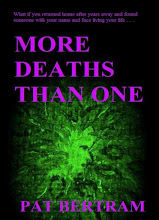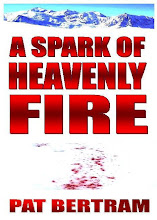Theme reminds me of literature classes and discussions about what certain authors meant. I wonder if those authors would agree with the meanings ascribed to their works, or if they are laughing in their graves at our foolishness.
It’s bad enough saddling classics with themes, but I have never seen the purpose of theme as it pertains fiction today. I mean, who cares? When you read Grisham or King or Cornwell, do you stop and ask yourself what the theme is? Of course not. No agent or editor who considered handling one of my books ever asked me my theme, so I have to assume they don’t care either.
Yet all the writing experts tell us we must establish a theme before we begin writing our novels.
Themes usually sound clichéd or silly, like “Murder doesn’t pay,” the basic theme of most murder mysteries, or “Love conquers all,” the basic theme of most romances. To a certain extent, all novels have the same underlying theme: “Who are we individually and collectively?”
Good fiction brings us closer to knowing the truth about ourselves, our place in the universe, and how we relate to others, but as a theme, it is so broad as to be almost worthless.
Although I’ve never had any use for themes, I decided to do something different and establish one for my current work in progress, a take-off on apocalyptic novels. Turns out it was simple.
All I had to do was look at the character sketch I created for the story, and I found this: “He will be forced to decide how much of his freedom he is willing to give up for safety, and how much of his safety he is willing to give up for his freedom.” Sounds like a theme to me. (And an unexpected use of my character sketch.)
Now that I have a theme, what do I do with it? When I need to figure out what my hero will do, I can refer to the theme to help me understand what he wants, what his motivations are. If I need a subplot, I can choose one that will enhance the theme. I can give relationships, especially minor ones, a greater significance by keying them into the theme. I can use it to give scenes and dialogue relevance beyond the immediate. Best of all, if the theme does what it is supposed to, it will give the story an underlying structure and resonance it would not otherwise have.
Maybe those dead writers are not laughing in their graves after all. Maybe they are high-fiving each other because we got what they were trying to say.
I’ve always enjoyed working with my hands to create original art pieces and
because I’ve tried quite a few different areas of art, I rather quickly
realize...










No comments:
Post a Comment